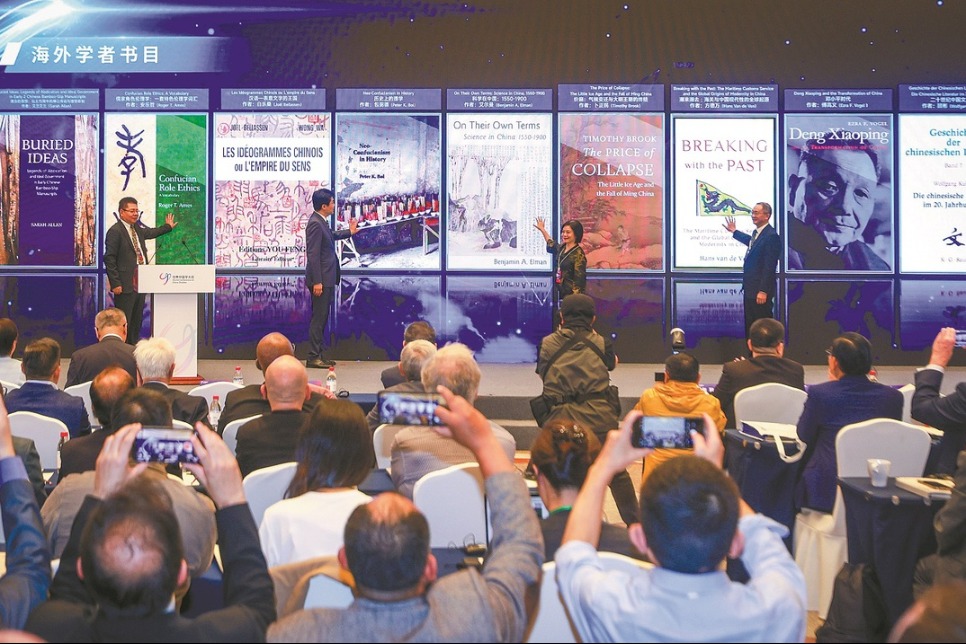Carbon neutral role model


China's pursuit of an ecological civilization and green development is helping to drive technological innovations in industries
Nature is not short of challenges. The COVID-19 pandemic is a common one for all nations, but even something as dangerous as this global public health threat pales in comparison to the potential long-term threats of climate change.
More people are realizing that climate actions are not just common wishes. They are actions that must be executed immediately. In the European Union actions in energy and climate are gathering momentum toward full climate neutral 2050-a strategic vision for achieving net-zero greenhouse gas emissions.
In China, the notions of an ecological civilization and green development are guiding the economy toward high-quality developments. These actions are not only taken by the authorities, but enterprises, for their innovative strengths are key to tackling this common challenge.
For example, at Bosch, climate action is seen as a crucial undertaking for the continued existence of human civilization. This is why, we are pursuing technological innovations to combat climate change and taking carbon neutral measures.
Energy efficiency and emissions reduction are key to addressing the challenge of climate change, and these are the drivers for technology innovation.
For instance, we are taking a technological open-minded approach to explore and validate innovative technologies for green mobility. A lot of R&D effort is in powertrain systems for electric and fuel-cell vehicles. In 2020 alone, 500 million euros ($567 million) was invested in electro-mobility, including fuel cells. For the existing sizable market of diesel and gasoline engines, we have introduced advanced exhaust treatment technologies to minimize emissions. Also for internal combustion engines, we are looking into renewable synthetic fuels that will make them carbon neutral in the future.
As the biggest automobile market and with half of the worlds' new energy vehicles, China will undoubtedly set the future trends for green mobility.
For this reason we are not only setting up a fuel cell technical center in Wuxi, Jiangsu province, but have also achieved volume production of 48-volt-batteries in Wuxi and e-axles in Taicang in the same province. Both are key technologies for hybrid and electric vehicles.
But climate change calls for action not only in the mobility sector, but in all industries. In consumer goods, products are becoming increasingly energy-efficient, especially heaters and home appliances. In manufacturing, lines are being upgraded so they are smarter and more energy efficient.
Last year we announced we would achieve carbon neutrality by the end of 2020, which will be the first for a major industrial company. This means all Bosch's 400 locations worldwide will no longer have a carbon footprint. China is an important part of this.
To this end, energy management systems have been set up in our 13 manufacturing sites in China. Driven by data collected from manufacturing processes and facilities, these systems can optimize the use of energy by various means, such as cooling water, compressed air and shutdown management. During the past five years, the company has invested more than 250 million yuan ($35.7 million) in environment protection to save water and energy and cut waste and carbon emissions. Compared to 2011, the company's carbon emissions in China decreased 52 percent per unit in 2019.
In 2019, our investments increased in photovoltaic power generation projects at our locations in China, and more than 28 million kilowatts hour of electricity was saved thanks to various energy saving initiatives.
We plans to contribute to the fostering of greener businesses in China by sharing the experience from more than 1,000 energy-efficiency projects, which will offer consulting services in climate neutral technologies and experiences.
In future four approaches could be used to achieve carbon neutral in industries: further increasing energy efficiency, expanding the supply of green energy, procuring more green electricity, and offsetting unavoidable carbon emissions.
Although currently facing challenges and pressure from the COVID-19 pandemic, the world must not lose sight of the future of our planet and the legacy we will leave future generations. As the whole world feels the effects of the COVID-19 pandemic, sustainability needs to become a driving force for economic recovery.
China can take the lead in this by investing in more energy-efficient and lower-emission infrastructure and encouraging green businesses. And for all enterprises, climate actions are a responsibility that they cannot shirk.
The author is the president of Bosch China. The author contributed this article to China Watch, a think tank powered by China Daily. The views do not necessarily reflect those of China Daily.


































